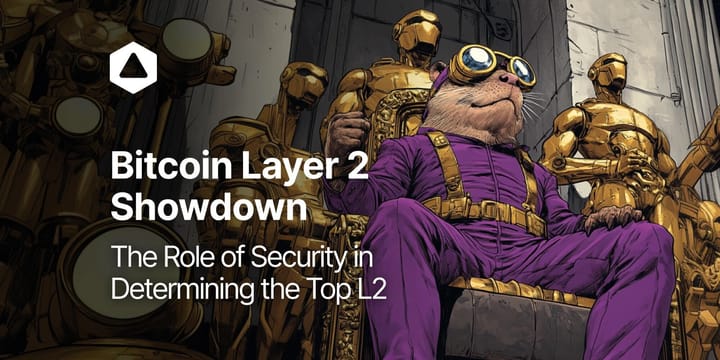Bitcoin and Institutional Investors: What’s Holding Them Back?

There is a sharp difference between the worth of Bitcoin in 2009, when it all started, and now. In the former, it was an emerging skeptical asset class. But now, it's a bit more recognized as some countries formally recognize it as a legal tender.
While a good number of individuals and entities are getting as much Bitcoins as they can, institutions are a bit more reserved and reluctant.
In fact, not all institutions who theoretically support Bitcoin are putting their money where their mouths are.
How come institutions are holding back from investing in Bitcoin? This blog is a diligent research result answering the above question.
What are the barriers keeping institutional investors from Bitcoin?
There are quite a good number of blockers for Bitcoin on an institutional level, and a few of them are:
Price Volatility
Other than stablecoins like USDC, the rest of crypto have relatively unstable prices. Meaning a token can be $100 today and drop to $70 the same day. Market forces, and sometimes unethical practices, determine the prices of tokens.
For instance, Bitcoin dipped well below $60k some months back. But as of mid-October 2024, it's moating around $70k. With almost a $10k sharp difference, that's how the Bitcoin market can be.
While this is completely normal in crypto, institutions are not entirely familiar with it. As a result, it makes them quite skeptical of the market. Indeed, there appears to be a mismatch of expectation and reality.
Institutions, in their books, often prefer investments that are either stable or appreciate steadily with time. However, Bitcoin promises neither of this as it can drop or appreciate within a span of time.
About four years ago, Goldman Sachs published a report stating its reluctance to have Bitcoin in its portfolio due to its volatility. This did not only reflect the stance of the mentioned firm, but several other institutional players.
Security Risks
Institutional investors are not often troubled about the security of assets such as gold, treasury bills, and bonds. But crypto is a much different terrain with security being a critical issue.
Kraken, a popular crypto exchange, suffered a $3 million crypto loss some months back due to a security vulnerability. Meanwhile, many institutions and individuals still have their Bitcoins stuck on Mt. Gox till date.
It's important to bear in mind that even when smart contracts are relatively safe, private keys can still be compromised and funds be successfully—albeit unfortunately—stolen.
In the case of Radiant Capital, the private keys of their multisig wallet was compromised; an event that led to a $50 million loss. Indeed, there are too many boxes to be ticked and one of which can cause catastrophic effects.
If industry insiders suffer security breaches to this extent, what will be the fate of institutions that are not even crypto natives? Hence, the reluctance of some institutions to have Bitcoin.
Regulatory Uncertainty
Crypto at large is a relatively new market. As a result, there are quite a lot of Bitcoin regulatory uncertainties in many jurisdictions.
Since institutions—probably—hold investor funds and should be accountable, they have to play by the books and only invest in assets that are marked safe and protected by regulations.
In some countries like China and Algeria, Bitcoin is not recognized and in fact banned. This connotes that institutions in such countries cannot have Bitcoin in their portfolio.
A rather more concerning idea is how quite a good number of jurisdictions are silently not in favor of Bitcoin.
This demeanor is also osmosized by the institutions in such countries as they are not sure whether or not Bitcoin will be declared illegal soon. According to KPMG, a major issue against Bitcoin institutional adoption is lack of clarity from the compliance point of view.
In law, every term should be defined and procedures spelt out for the sake of Clarity. Otherwise, an investor can face unfavorable legal consequences.
Something of similar nature can be seen in the recent cases between Consensys and the US SEC, and Coinbase and the US SEC.
Still in connection to regulation, different political camps in a country have varying ideologies concerning Bitcoin.
For institutions, if they bag Bitcoins into their portfolio when a favorable party is in power, another might come and impose unfavorable laws and taxes on Bitcoin.
Therefore, some institutions prefer to play safe with the assets they are familiar with, rather than dabble into Bitcoin which is a bit uncertain.

How can these barriers be addressed?
So far, we have highlighted the concerns of institutions regarding Bitcoin. Perhaps you work at an institution, you might wonder and ask, “So what is the way forward?”
On Price Volatility
On a more critical look, price fluctuation is neither native to Bitcoin nor crypto; it can be associated with the general financial market.
Stocks of Tesla and Meta have once plummeted. Thus, it's quite disingenuous to downgrade Bitcoin simply because of price volatility.
One thing is sure: prices rise and fall.
Importantly, institutions have to zoom out in examining the fundamental and technical underpinnings of Bitcoin. Since their main concern is whether or not Bitcoin is a fluke, then this clearly shows there is a research gap to be fixed.
On this note, it's imperative that crypto companies and firms organize C-level Bitcoin workshops for institutions to have a better grasp of the asset; particularly from fundamental and technical standpoints. Once there is the right knowledge, price fluctuations wouldn't be a deterring factor.
Audits and OpSec Fix Bitcoin Security Concerns
Many institutions have valid concerns about Bitcoin security after seeing several hacks and breaches; understandably so. A way to fix security issues is to catch them ahead of time and implement best practices.
This is where audits come in. Thorough audits ensure every vulnerability in the smart contract [or application] is detected to ward-off blackhats.
With the current level of developments, especially with the Radiant Capital hack, there is a need to be up to date with best practices to be effectively safe in custodial of onchain assets.
Notably, data and financial hacks occur frequently in Web2 as well. But they are curtailed with audits and OpSec; the same applies in Web3. With proper security guardrails, institutions have nothing to hinder them from having Bitcoin in their portfolio if they want to.
Demand and Push for Regulatory Clarity
Regulators have the fiduciary relationship to protect everyone within their jurisdictions. Indeed, the FTX and LUNA fiasco are still fresh in the mind of regulators. Thus, suspicion of legitimizing any crypto—including Bitcoin—appears to be quite understandable.
This is the reason crypto stakeholders, particularly Bitcoin leaders, have to meet with regulators and clear their doubts, then demand for clear regulations on some gray areas.
Recently, Consensys, Uniswap, and Coinbase jointly pushed for Ethereum not to be classified as a security. a16z also provided an amicus brief concerning the same to further guide the court.
Similarly, the Bitcoin community can do these for regulatory clarity:
- creation of materials that regulators can read to be more clear their doubts on Bitcoin
- collaborating with lawmakers on pushing laws on Bitcoin
Major Institutions Adopting Bitcoin
The persuasion of institutions to adopt Bitcoin is particularly to those who haven’t. Indeed, a good number of institutional investors have already filled knowledge gaps and were convinced of Bitcoin’s viability.
Per CoinGecko, there are 29 known public companies [or institutions] holding 360,215 Bitcoin; these include Tesla and Exodus Movement.
Recently, MicroStrategy—one of the firms that is heavily invested in Bitcoin—publicly announced getting 3X returns on Bitcoin. Thus showing that some institutions are not only adopting Bitcoin, but are also making good returns on their investments.
From a business perspective, analysts posit that a good number of institutions held back by skepticism may soon be seen believing in Bitcoin.
Speaking of skepticism, Larry Flink—the CEO of BlackRock—was openly against Bitcoin. But recently, he admitted being wrong and is now a strong advocate. Clearly, institutions are gradually having favorable demeanor towards Bitcoin.
Author: John Fawole

Connect with Bitfinity Network
Bitfinity Wallet | Bitfinity Network | Twitter | Telegram | Discord | Github

*Important Disclaimer: The information provided on this website is for general informational purposes only and should not be considered financial or investment advice. While we strive for accuracy, Bitfinity makes no representations or warranties regarding the completeness, accuracy, or reliability of the content and is not responsible for any errors or omissions, or for any outcomes resulting from the use of this information. The content may include opinions and forward-looking statements that involve risks and uncertainties, and any reliance on this information is at your own risk.
External links are provided for convenience, and we recommend verifying information before taking any action. Bitfinity is not liable for any direct or indirect losses or damages arising from the use of this information.





Comments ()